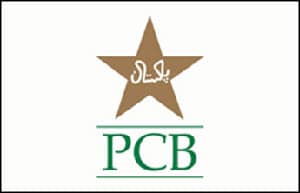Bangladesh could tour Pakistan in 2012
The resumption of international cricket in Pakistan, which stopped after the attack on the Sri Lankan team in Lahore in March 2009, could be the by-product of a deal between the PCB and its Bangladesh counterpart over choosing the next ICC vice-president.
- Written by ESPNCricinfo Staff
- Updated: November 23, 2011 01:14 pm IST
 The resumption of international cricket in Pakistan, which stopped after the attack on the Sri Lankan team in Lahore in March 2009, could be the by-product of a deal between the PCB and its Bangladesh counterpart over choosing the next ICC vice-president. The nomination rests with the two countries and Pakistan are reportedly ready to concede its right for an expected tour by Bangladesh in 2012.
The resumption of international cricket in Pakistan, which stopped after the attack on the Sri Lankan team in Lahore in March 2009, could be the by-product of a deal between the PCB and its Bangladesh counterpart over choosing the next ICC vice-president. The nomination rests with the two countries and Pakistan are reportedly ready to concede its right for an expected tour by Bangladesh in 2012.
The deal, however, is being explained in official circles as the conclusion of a gentleman's agreement that resulted in Pakistan's Ehsan Mani becoming the ICC president in 2003.
The ICC executive board, at its meeting in October, had asked the PCB and BCB to nominate a candidate for the vice-presidency for the 2012-14 term, in keeping with the rotational system. The nomination has to be firmed up by December 31, the ICC will discuss it in January and the appointment will be effective in June. The two board chiefs, Zaka Ashraf of the PCB and the BCB's Mustafa Kamal, have already held one - reportedly inconclusive - meeting in Dubai. They are due to meet again in Dhaka on the sidelines of Pakistan's tour in December.
For Pakistan, the benefits are clear: they are keen for international cricket to return to the country and Ashraf, barely a month into his job, has set that as his primary target - even at the cost of what will lead to the top job in international cricket. To that end, he has repaired relations with Bangladesh to an extent, from the frosty ties under his predecessor Ijaz Butt. The ties were strained after cancelled junior cricket tours to Pakistan and by Bangladesh not supporting Pakistan over the staging of matches during the 2011 World Cup.
On the face of it the deal is a formality. When, in 2003, the two boards agreed on Mani's candidature for the president's post, it was on the understanding that the next cycle would go Bangladesh's way. Even the mooted tour is not expected to be a problem; Bangladesh don't have any problems with travel to Pakistan - the national football team went there earlier this year for a World Cup qualifier - and the series is part of the ICC future tours programme, scheduled for April 2012.
Pakistan, however, has reportedly sought written assurance from Bangladesh that it will not backtrack from the understanding.
The bigger issue, however, seems to be a lack of clarity in Bangladesh. The BCB hasn't discussed it, nor has Kamal spoken to his directors about his meeting with Ashraf. BCB officials say they are wary of commenting since the decision will be taken at the highest political levels. Nor is there any unanimity on candidates for ICC vice-president, with several hats in the ring.
Kamal leads the way and seems to have his sights firmly on the job. A political appointment, like all his predecessors, he's also a Minister of Parliament (MP) and reasonably in favour with the top bosses of the ruling Awami League. Kamal's closest contender seems to be Saber Hossain Chowdhury, the former BCB president. Chowdhury, also an MP, has immense credibility as a cricket administrator - he ushered Bangladesh into Test cricket after overseeing their ICC Trophy win and securing their ODI status, and also brought in Gordon Greenidge as coach. However, his political clout has waned in recent times; he was once a close aide of the Prime Minister's but has been kept away from a ministerial role.
Also doing the rounds are the names of two Pakistanis - Mani, and former captain Majid Khan. Mani told ESPNcricinfo he had been contacted by officials from Bangladesh but it is believed the PCB has made no serious attempt to make contact with either; despite their strong CVs they remain long shots.
"I have no interest in seeking the post for a second time," Mani told ESPNcricinfo. "There are other very good people in Bangladesh and Pakistan and I am sure that if the right person is selected he would be a credit to both the countries.
"The important thing is that the two boards should ensure that their nominee has the right qualification and standing in the game and will act in the best interests of the game."
